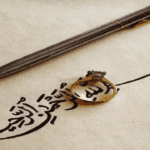In the hustle and bustle of our daily lives, moments of reflection and gratitude often take a backseat. One such moment that holds immense spiritual significance is saying a prayer before meals, known as “Khana Khane Ki Dua” in Islamic tradition. This article delves into the depth of this practice, exploring its cultural, spiritual, and personal dimensions.
بِسْمِ اللّٰہِ وَعَلٰی بَرَكَةِ اللّٰہِ
In the name of Allah and with the blessings of Allah I begin (eating)
Contents
- 1 अल्लाह के नाम पर और अल्लाह की रहमत से मैं खाना शुरू करता हूं
- 2 The Significance of Saying a Prayer Before Meals
- 3 Khana Khane Ki Dua in Islamic Tradition
- 4 When and How to Recite the Dua
- 5 Spiritual Connection and Gratitude
- 6 Benefits of Reciting Khana Khane Ki Dua
- 7 Incorporating the Dua into Daily Life
- 8 Khana Khane Ki Dua in Different Cultures
- 9 Common Misconceptions
- 10 Addressing FAQs Related to Khana Khane Ki Dua
- 11 Personal Stories and Experiences
- 12 Promoting Unity Through Shared Traditions
- 13 Conclusion
- 14 FAQS
- 14.1 Is Reciting Khana Khane Ki Dua Obligatory in Islam?
- 14.2 What Should One Do If They Forget to Say the Dua Before a Meal?
- 14.3 Can Non-Muslims Also Benefit From Saying a Prayer Before Meals?
- 14.4 How Can Individuals Create a Habit of Reciting the Dua Regularly?
- 14.5 Are There Variations of the Dua for Special Occasions?
अल्लाह के नाम पर और अल्लाह की रहमत से मैं खाना शुरू करता हूं
The Significance of Saying a Prayer Before Meals
Before we explore the specifics of Khana Khane Ki Dua, it’s essential to understand why saying a prayer before meals holds such importance. Beyond the physical act of nourishing our bodies, this ritual brings attention to the spiritual aspect of food consumption.
Khana Khane Ki Dua in Islamic Tradition
Understanding the Meaning
Khana Khane Ki Dua is not merely a set of words; it carries profound meanings. It acknowledges the blessings of the food and expresses gratitude to the Almighty for the sustenance provided.
When and How to Recite the Dua
This section guides readers on the appropriate times to recite the dua and the simple yet powerful manner in which it can be done. Emphasis is placed on the intention and mindfulness during this practice.
Spiritual Connection and Gratitude
Beyond the religious context, saying a prayer before meals establishes a spiritual connection between the individual and the divine. It serves as a reminder of the abundance in our lives, fostering a sense of gratitude that extends beyond the dining table.
Benefits of Reciting Khana Khane Ki Dua
Cultural and Social Impact
Explore how the practice of saying a prayer before meals transcends individual spirituality and contributes to a sense of community and shared values.
Personal Well-being
Delve into the psychological and emotional benefits of incorporating gratitude into daily meals, promoting a positive mindset and overall well-being.
Incorporating the Dua into Daily Life
Teaching Children the Importance
Highlight the role of parents and guardians in instilling this practice in children, emphasizing the values of gratitude and mindfulness from a young age.
Creating a Ritual Around Mealtime
Offer practical tips on how individuals and families can create a meaningful ritual around mealtime, making the recitation of Khana Khane Ki Dua a central part of their daily lives.
Khana Khane Ki Dua in Different Cultures
While rooted in Islamic tradition, this section explores how variations of mealtime prayers exist in different cultures, demonstrating the universal nature of expressing gratitude before eating.
Common Misconceptions
Address misconceptions surrounding Khana Khane Ki Dua, clarifying its purpose and dispelling any misunderstandings that may exist.
Addressing FAQs Related to Khana Khane Ki Dua
What is the purpose of saying a prayer before meals?
Can the dua be recited in any language?
Is there a specific time for reciting Khana Khane Ki Dua?
How does saying the dua impact one’s mindset during meals?
Are there variations of the dua in different Islamic traditions?
Personal Stories and Experiences
Include anecdotes and real-life experiences from individuals who have embraced the practice of saying a prayer before meals, showcasing the personal transformation and impact on daily life.
Conclude by highlighting the potential for unity and understanding that can be fostered through shared traditions like Khana Khane Ki Dua, transcending cultural and religious boundaries.
Conclusion
In a world often characterized by fast-paced living, taking a moment to express gratitude before meals through Khana Khane Ki Dua offers a simple yet profound way to reconnect with our spiritual selves. Beyond religious boundaries, this practice has the potential to foster unity, understanding, and a shared sense of gratitude.
FAQS
Is Reciting Khana Khane Ki Dua Obligatory in Islam?
Reciting Khana Khane Ki Dua is not obligatory in Islam, but it is highly encouraged and carries significant spiritual benefits. While it is not a mandatory act, many Muslims choose to recite the dua before meals as a way to express gratitude and seek blessings from Allah for the food they are about to consume.
What Should One Do If They Forget to Say the Dua Before a Meal?
If someone forgets to say Khana Khane Ki Dua before a meal, there’s no need to panic. In Islam, the emphasis is on intention and sincerity. One can silently recite the dua in their heart, even after starting the meal. Allah is merciful, and the act of remembrance, even if belated, is still acknowledged.
Can Non-Muslims Also Benefit From Saying a Prayer Before Meals?
Absolutely, the practice of saying a prayer before meals transcends religious boundaries. The act of expressing gratitude before consuming food is a universal concept that promotes mindfulness and appreciation. Non-Muslims can benefit from incorporating their own form of prayer or gratitude expression into their meals, fostering a positive mindset.
How Can Individuals Create a Habit of Reciting the Dua Regularly?
Creating a habit of reciting Khana Khane Ki Dua regularly requires consistency and intention. One can set a specific time for recitation, such as before starting a meal or during a designated family moment. Associating the dua with a routine, like dinner time, can help make it a natural part of daily life. Additionally, involving family members or friends can turn it into a shared practice.
Are There Variations of the Dua for Special Occasions?
While the core of Khana Khane Ki Dua remains consistent, individuals may choose to add personal prayers or supplications during special occasions or significant moments. This personalized touch allows for a deeper connection with the divine, tailoring the expression of gratitude to the specific circumstances or events surrounding the meal.










